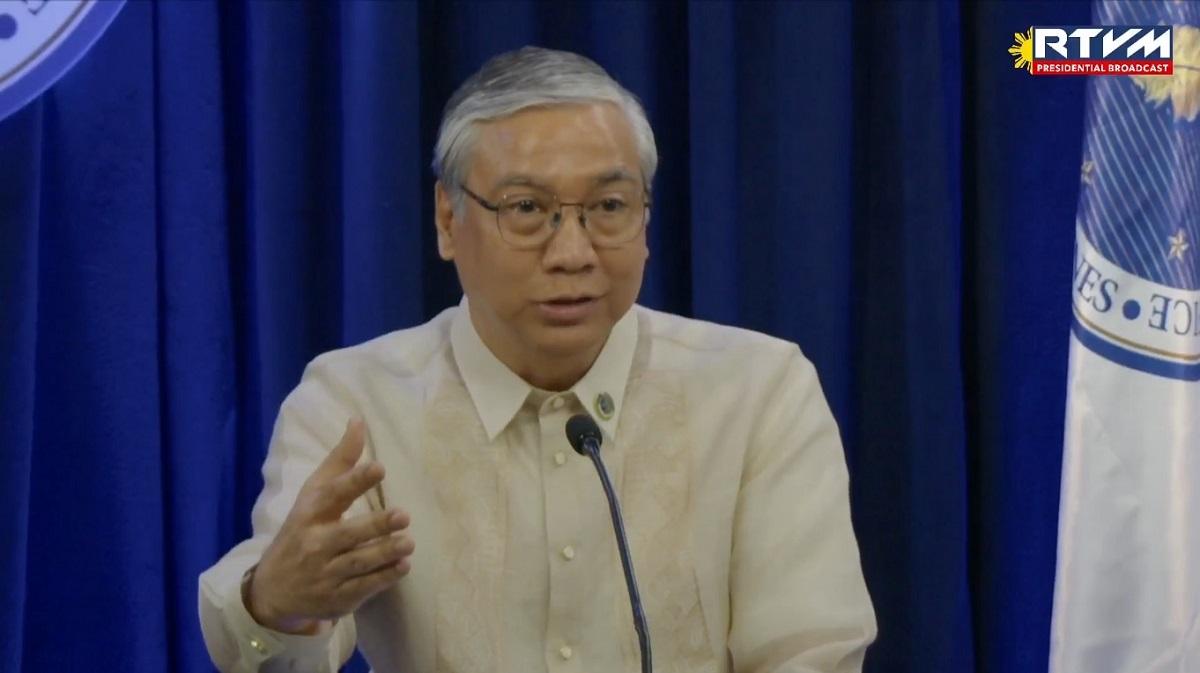DOJ pushes for more humane, public health response under anti-drugs law

The Department of Justice (DOJ) on Wednesday backed the calls to amend the Comprehensive Dangerous Drugs Act of 2002, believing that addressing the long-standing drug problem in the country does not need to be done through guns and intimidation.
In a Drug Policy and Reform Summit, DOJ Undersecretary Jesse Andres stressed that the drug problem remains one of the most pressing issues in the Philippines, with various administrations “unable to fully address [it],” even after more than two decades since the enactment of Republic Act No. 9165, and more than 50 years since the enactment of its legal predecessor, RA No. 6425 or the Dangerous Drugs Act of 1972.
The Justice official said that drug users need not to be “demonized nor dehumanized,” instead be handled through a more human rights-based manner, and be given the necessary public health response.
“It is only through this shift towards a more human rights-based and public health approach that we will come up with a wider spectrum of solutions that is holistic, responsive, and more grounded—one that does not entail guns, threats, and intimidation,” Andres said.
“And while the solution to the drug problem is not expected to come with one silver bullet nor a singular slash of the sword of lady justice, I am certain that it is within our collective power to create a roadmap of solutions and interventions, and to institutionalize such mechanisms,” he added.
President Ferdinand "Bongbong" Marcos Jr. himself had said that he is opposed to handling the drug menace with violence, as compared to his predecessor, Rodrigo Duterte, who is known for his bloody war on drugs.
Dangerous Drugs Board (DDB) Executive Director Earl Saavedra, meanwhile, said there is a need for drug policy reform in the Philippines as there are “gaps” in the existing law.
According to him, the drug abuse prevention and control agenda must emphasize health, social, and developmental services as “an important pillar of action” in addressing the problem.
“That is why we collectively push for the current law to either be amended or for our lawmakers to introduce a proposed bill to govern the anti-drug campaign of the country. Indeed, we acknowledge that there are gaps when it comes to the current anti-drug law. These gaps are either caused by institutional limitations or loopholes in the existing law,” Saavedra said.
UN Office on Drugs and Crime (UNODC) regional representative Masood Karimipour echoed this, saying that the way to combat drugs is not to fight harder, but to respond smarter. One of the ways, he said, is through a people-centered approach.
“I think that the Philippines can be very proud of its reforms over the last couple of years. And how far, my goodness, how far has the Philippines come in only a couple of years in moving
from a very excessively punitive response to a more public health and human rights-based response," Karimipour said.
In May, Interior and Local Government Secretary Benhur Abalos reported that some US$587 million worth of illegal drugs have been seized during the Marcos administration's first two years.
Abalos said the figure, which was about P33.9 billion, was a 700% increase from previous years, saying that the improvement was achieved "with minimal loss of life." — BM, GMA Integrated News




